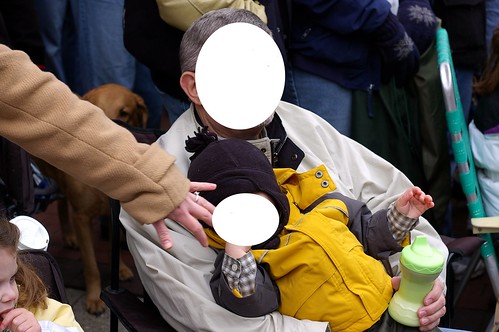mw_uio
Well-known
oday, Sunday 27th, I grabed one roll of Kodak Gold 24Exp. and decided to photograph the street I live on with my F3HP/24.2.8 combo. [light was overcast, and very few people]. I went four blocks south where the street starts from the American Embassy. [no I did not photograph the embassy]. I started with my back to it, and walked north every 50-60 meters or so to photograph the street. I was mainly pointing my camera to off centre, covering the arquitecture. About 8 blocks north, I was almost done, and I wanted to photograph a house that is a restaurant. I walked up to the house, on the sidewalk and the guard hears my foot steps, and sees me with my camera and tells me no, I can not photograph the house. I argued telling him I was on public property, and I have the right to photograph this restaurant. I walked away and tried for a photograph and the guard told me no. I argued a bit more then I walk off. I did not take a photo close up of the house. I have a photo about 50 metres away, before I got to the house. Anyways......
Tomorrow, I will go to the restaurant and speak with the owner and tell them what happened on Jan 27th. . This restaurant is not cheap by any means.
I hope that the rest of us stick up our rights when in a public place.
Now this week I am more curious than ever to findout about photography and the rights of photographers in Ecuador.
MArk
UIO
Ecuador
Tomorrow, I will go to the restaurant and speak with the owner and tell them what happened on Jan 27th. . This restaurant is not cheap by any means.
I hope that the rest of us stick up our rights when in a public place.
Now this week I am more curious than ever to findout about photography and the rights of photographers in Ecuador.
MArk
UIO
Ecuador



